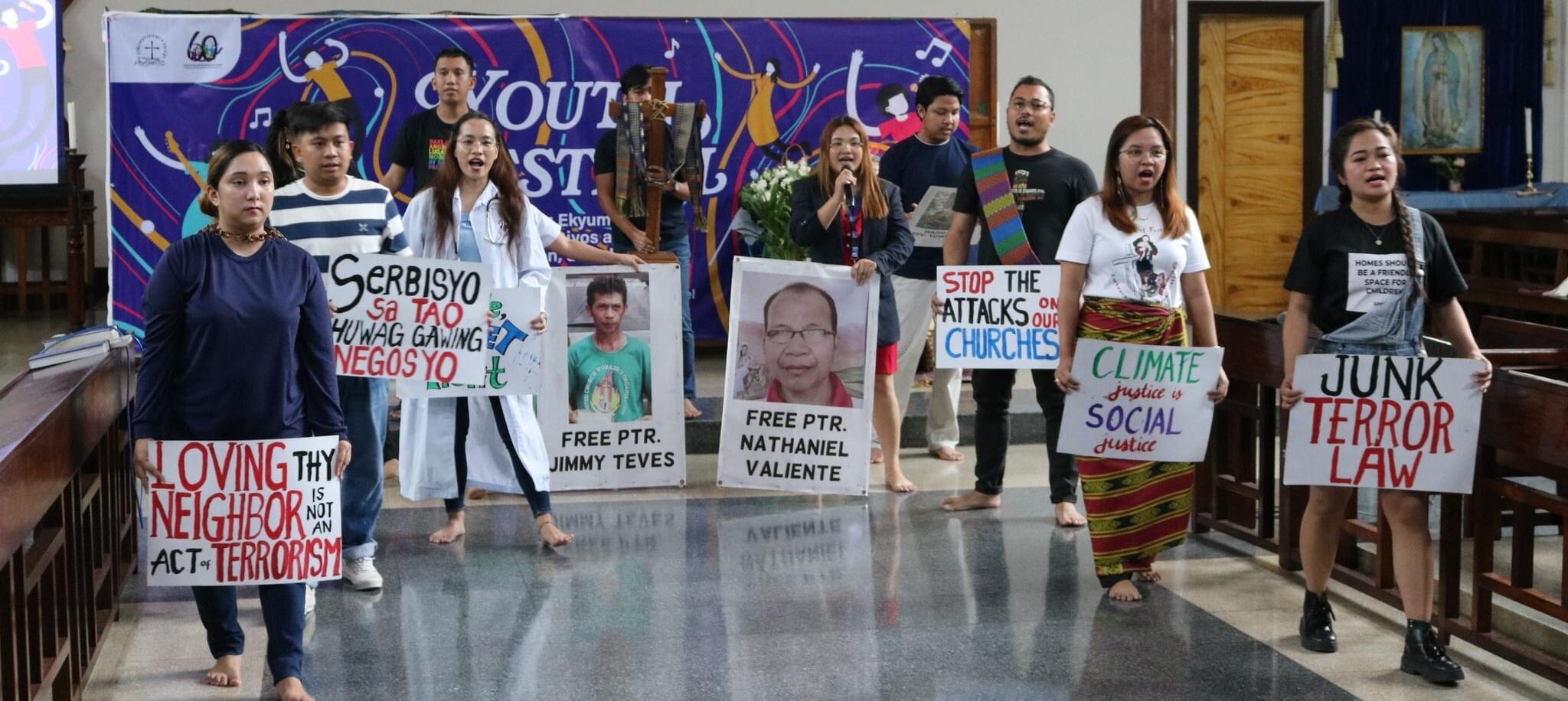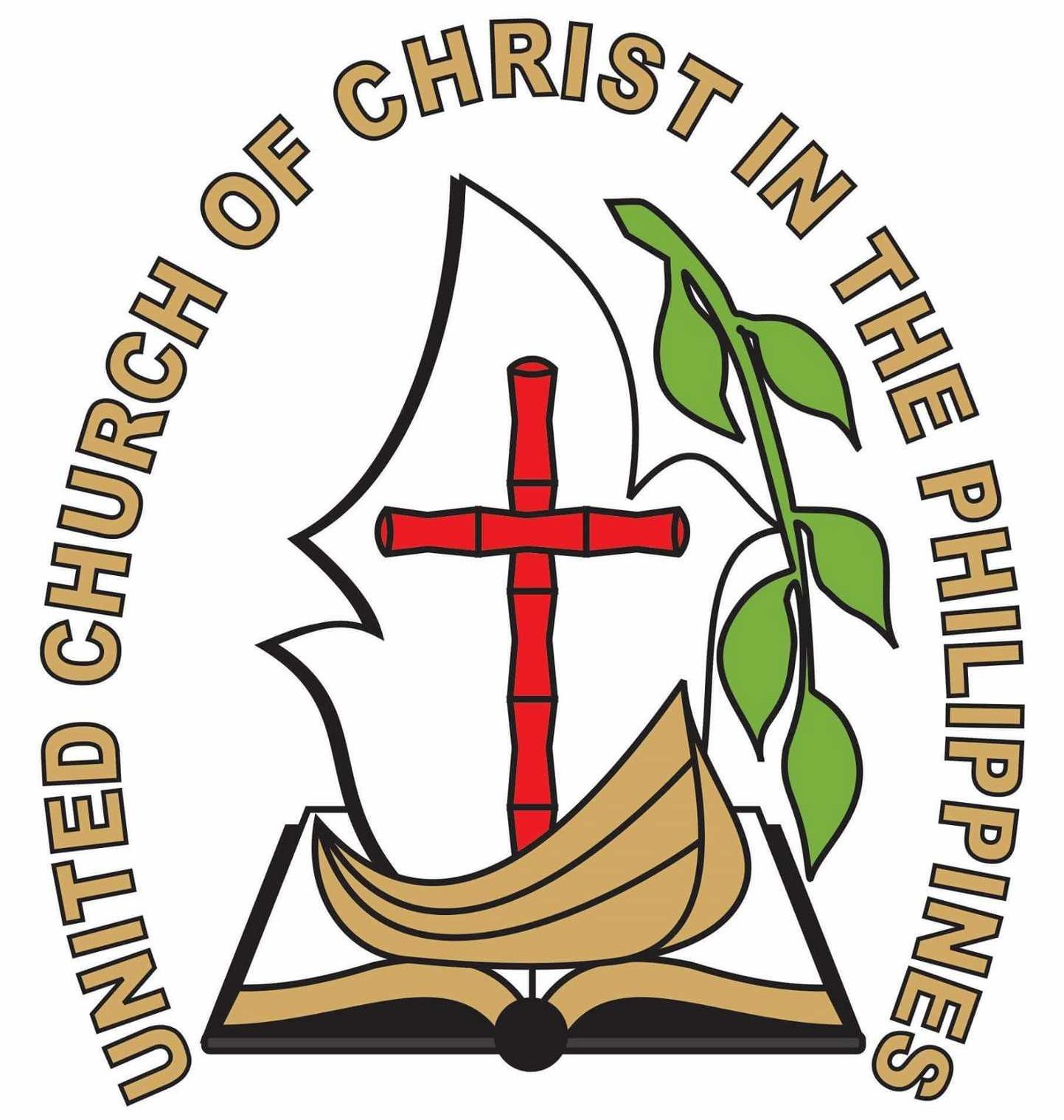A CALL FOR CONTINUING VIGILANCE
UCCP | Posted on |


Photo Courtesy of Kalipunan ng Kristiyanong Kabataan sa Pilipinas
Against Human Rights Abuses in the Philippines
According to the teachings of our Christian faith, life is sacred and should always be valued. Proverbs 31:25 states unequivocally that a person’s power and dignity are their garments.
Former President Rodrigo Duterte’s term, which ended on June 30, 2023 was defined by the politics of threats and intimidation, thousands of extrajudicial killings of mostly impoverished Filipinos, and serious damage to the country’s democratic institutions.
Few things have changed in terms of human rights since Ferdinand Marcos Jr. took office.
This September, the Office of the High Commissioner for Human Rights (OHCHR) of the United Nations outlined the main human rights issues the nation is currently facing. These include ongoing “red-tagging, attacks, arrests, harassment, threats, and arrests against civil society actors, as well as the ongoing drug-related police killings.” The report noted how “victims of human rights violations and abuses remained very limited in their access to justice.”
In an effort to reassure the international community of his commitment to human rights, President Ferdinand Marcos, Jr. and his allies said that the state of human rights in the Philippines has improved. However, reports to the council demonstrating ongoing violations of human rights by human rights and civil society organizations refuted these allegations.
Continuing his predecessor’s “war against drugs,” at least 90 people had died between Marcos Jr’s inauguration and the September report, in what the Third World Studies Center of the University of the Philippines called “drug-related violence.”
According to government reports, 6,252 people were killed by Philippine National Police and Philippine Drug Enforcement Agency agents during anti-drug operations that took place between July 1, 2016, and May 31, 2022. The official death toll does not include the victims of unknown gunmen who, according to Human Rights Watch and other rights monitors, are believed to work in tandem with local law enforcement. In a 2020 report, the OHCHR estimated that at least 8,663 people had died. The real number of “drug war” deaths, according to local human rights organizations and the government-appointed Philippines Commission on Human Rights, maybe triple that of the OHCHR report.
Civil society organizations have been accused by government and military officials of supporting communist insurgents known as the New People’s Army (NPA). These unsubstantiated charges are a form of “red-tagging,” putting the accused in
danger of being attacked by security personnel or unidentified gunmen. Social media has been actively used by the military, police, and other national security agencies to spread threats.
The National Task Force to End Local Communist Armed Conflict, a government agency that collaborates closely with the police, military, and president’s office, has accused a number of political activists of belonging to the NPA or the Communist Party. Even former Vice President Leni Robredo, who lost to Marcos in the last election, has been red-tagged by the task force. Additionally, international non-governmental organizations (NGOs), such as Oxfam, book publishers, and journalists have been red-tagged by the task force.
Judge Marlo Magdoza-Malagar was also red-tagged in September after tossing out a case that sought to declare the Communist Party of the Philippines and its armed wing as “terrorist groups.” This prompted legal advocacy organizations and even the Supreme Court to step in. Lorraine Badoy, a former spokesperson for the National Task Force to End Local Communist Armed Conflict, was specifically asked to explain to the court why she shouldn’t be held in contempt.
Red-tagged human rights and peasant organizations’ leaders and lawyers have suffered physical harm at the hands of government security forces and vigilantes; several have even lost their lives. A group of nuns and peasant women who were accused of supporting “terrorist activities” were among those who faced harassment.
Among the most obvious victims of abuses and violations of human rights in the Philippines are some of our own UCCP pastors, Rev. Nathaniel “Dodo” Vallente and Pastor Jimmie Teves…, who have been detained for over a year now on trumped up accusations, while Rev. Edwin Egar and Rev. Juliet Egar, and Ronal Ramos of UCCP Macalamcam are also facing Anti-Terrorism Law and Anti- Terrorism Financing Law cases.
Human rights are also seriously threatened by the ongoing conflict between Israel and the Palestinians on the international front. The effect of the fighting on civilians is one of the main human rights issues. The conflict has resulted in severe civilian casualties for both Palestinians and Israelis. The targeting of civilian populations and infrastructure, including residences, schools, and medical facilities, gives rise to worries over infringements of the right to life and the proscription of assaults without distinction. There has been constant worry about how these acts may affect Palestinian rights, particularly their freedom of movement and right to self-determination.
The human rights situation in the Philippines has for the longest time been a matter of concern for various international organizations, activists, religious groups, and observers.
We call on our constituents and the Filipino people to continue vigilance against human rights abuses in the Philippines and elsewhere, as we see the ongoing need for attention, awareness, and action to address and prevent further violations. Together,
- Let us continue monitoring and documenting human rights abuses in the Philippines;
- Advocate for continued international scrutiny of the human rights situation in the Philippines. Engage with international organizations, governments, and diplomatic missions to ensure sustained attention and pressure for positive change.
- Encourage and support the active involvement of civil society organizations, human rights defenders, and grassroots movements in advocating for human rights.
- Advocate for accountability through legal means.
- Emphasize the importance of protecting journalists, human rights defenders, and activists who work to expose and address human rights abuses.
Let us, as a faith community keep up our prayers for a nation that is free from injustice and abundant in righteousness, peace, and justice.
THE COUNCIL OF BISHOPS
10 December 2023
Bishop Melzar D. Labuntog
General Secretary
Bishop Joseph G. Agpaoa
North Luzon Jurisdictional Area
Bishop Francisco S. Aviso, Jr.
Middle Luzon Jurisdictional Area
Bishop Victor L. Paller
South Luzon Jurisdictional Area
Bishop Jerby S. Salor
East Visayas Jurisdictional Area
Bishop Feliciana P. Tenchavez
West Visayas Jurisdictional Area
Bishop Ligaya F. San Francisco
Northwest Mindanao Jurisdictional Area
Bishop Daniel R. Palicte
Southeast Mindanao Jurisdictional Area
Bishops Emeritus:
Bishop Arturo R. Asi
Bishop Jerome C. Baris
Bishop Jezer E. Bertoldo
Bishop Erme R. Camba
Bishop Ebenezer C. Camino
Bishop Constante D. Claro
Bishop Marino I. Inong
Bishop Reuel Norman O. Marigza
Bishop Roel P. Mendoza
Bishop Jaime R. Moriles
Bishop Emergencio D. Padillo
Bishop Eliezer M. Pascua
Bishop Dulce Pia-Rose
Bishop Elorde M. Sambat
Bishop Anacleto G. Serafica
Bishop Jessie S. Suarez
Bishop Rizalino Q. Taganas
Bishop Joel E. Tendero
Bishop Hamuel G. Tequis
Bishop Modesto D. Villasanta
Please click this link for the downloadable file, A Call for Continuing Vigilance

Leave a Reply
You must be logged in to post a comment.